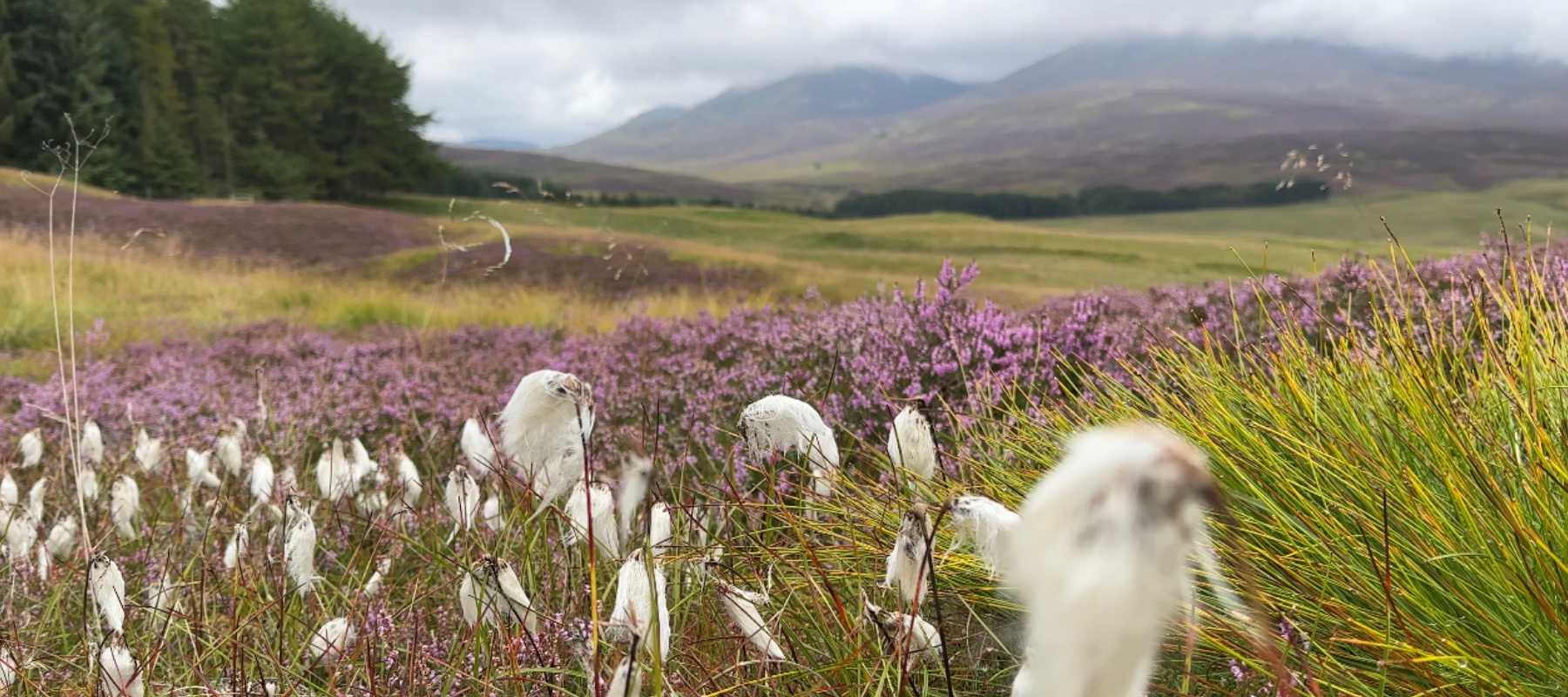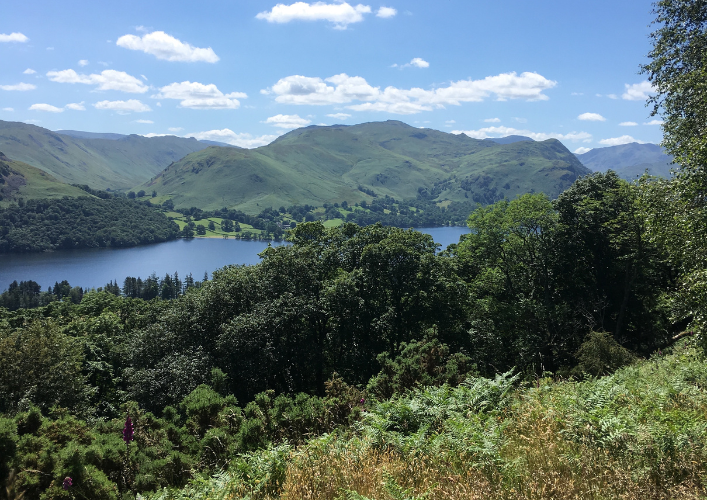A Whole system approach
Introduction
If we are to cool our planet, reverse biodiversity collapse, revitalise culturally rooted communities and secure nutrients for a growing population, then we must to adopt a regenerative ‘whole system’ approach to managing our landscapes.
The Wilderculture Approach is where we use regenerative design principles to co-create socially, economically and environmentally integrated management plans for upland and marginal landscapes.
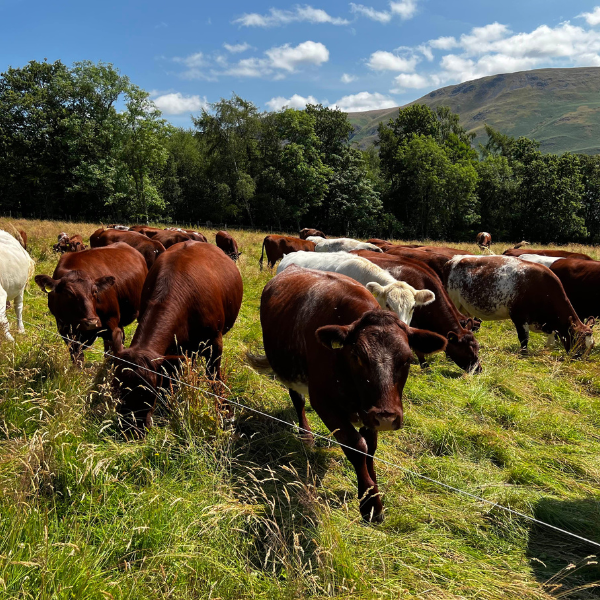
Watch the video below to learn more from farms in transition.
What is it?
The Wilderculture Approach
The Wilderculture Approach uses regenerative principles to design management plans for upland and marginal landscapes. Plans that make economic sense. We work alongside land owners and managers to co-create these plans.
Our methods integrate all the social, environmental and economic factors unique to each project.
Upland and marginal landscapes in Britain are mostly farmed with livestock but these landscapes would once have comprised of a far more complex mosaic of habitats than they do today. This is because herbivores can either degenerate or regenerate land, depending on how they are managed.
Here at Wilderculture, we are specialists in creating livestock grazing plans, which will rapidly stimulate regeneration at a landscape scale. In so doing, we integrate high-quality food production with ecological restoration.
Our ‘regenerative principles’ are not just applicable to upland farming, but also to conservation or rewilding projects where livestock might be used as a tool for such restoration.
In our view, the future of farming and land management is one of a far more conscious engagement with the land and an understanding of the dynamics of nature. We need to learn to think like an ecosystem and understand the role of herbivores as ecosystem engineers. Managed with regenerative principles, herbivores rapidly cycle carbon into the soil matrix, kickstarting soil life. This creates a cascade of biodiversity, and with it… productivity.
The land owners and managers we work with no longer require as many expensive inputs such as bought-in feed. They are often able to outwinter their livestock because they work towards livestock that are suitable for their environment, and winter grazing is pre-planned throughout the year.
Because our approach restores the land’s natural productivity, we also see the burgeoning of wildlife. This restoration of ecosystems increases the health of both wild and domestic species.
Livestock have available to them a far more varied diet, which stimulates health and vitality, and animals are able to self-medicate with plants, herbs and trees. Over the longer term, as the complexity of community dynamics increases in the ecosystem, ‘problem’ species become less dominant.
On our projects, we see a reduction in vets’ bills and the need for prophylactic treatment. In its place, we encourage testing for parasites and the monitoring of livestock health to ensure that it remains optimal. All of this feeds back into ecosystem complexity, as key species, such as dung beetles, return to the land.
When livestock are managed with regenerative principles, what we find below the soil surface is a highly diverse ecosystem with an ever-deepening soil-carbon matrix. This is the vast landscape scale sponge that holds water, making land far more resilient to floods and drought.

Increased Biodiversity

Builds Soil Health

Effective ecosystem services

Reduced carbon footprint

Economically Viable plans

Adapted to people and place
In the face of political and climate uncertainty, the Wilderculture Approach is an excellent choice for securing an economic and environmentally resilient future.
What does it involve?
The Wilderculture Approach Transition
In order to benefit from a highly functional ‘whole system’, which is our end goal, several parts of our farm ecosystem need time to transition.
Soils must become biologically active and build in natural fertility.
Plant communities need to shift to become more complex and plants must build nutrient bridges with the living soil.
Livestock must be selected for their resilient traits and suitability for the system.
Landscapes must become more complex supporting a wide diversity of habitats and wildlife.
People need time to learn the approach, see problems differently, make decsions holistically, and build a capacity for resilience.
The communities and people with whom the management interacts need to understand the aims and objectives of the approach.
This transition typically takes decades with many setbacks along the way. At Wilderculture however, we have developed expertise in accelerating this transition through proactive training, coaching and peer to peer support – this is delivered though the Wilderculture Approach transition package.
Landscape-level changes will still take time, but the sooner a plan is developed and management decisions are moving you towards your goals, the sooner you will reap the rewards of whole system function.
Who is it for?
The Wilderculture approach transition package is ideal for those who are managing or intend to manage a land base in an upland or marginal landscape.

Farms or Estates
Ideal for large farm or sporting estate teams in marginal or upland settings.
The whole farm/estate team is invited to go through the site-based training.
Although the content is taught through the lens of the UK context, the framework can be applied to any landscape worldwide.

Land Consultants
The Wilderculture approach is a good fit for land-based farm or conservation consultants and land agents who work in the uplands and would like a framework to use for their farm or estate clients.
It will be helpful, although not essential, to have a farm to use as a case study or live project throughout the year.

Conservation or rewilding project managers
The Wilderculture approach framework is ideal for nature conservation managers who are interested in developing process-led management plans that include large herbivores.
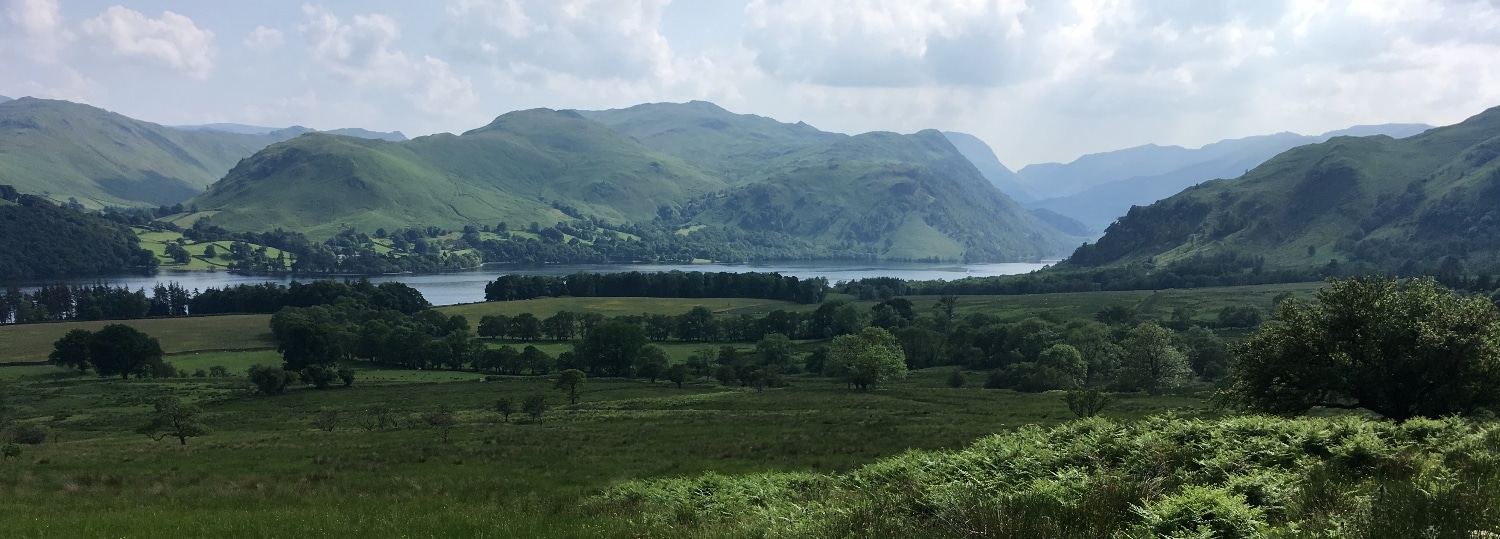
What does it involve?
Wilderculture Approach Transition
Adopting the Wilderculture Approach on your farm or estate will require a transition process that has several planning stages;
- Learning the principles of regeneration.
- Designing your whole system context – environmental, social and economic goals.
- Developing the habitat, grazing and animal health plans.
- Whole system decision-making and ongoing tailored support.
- Developing and implementing your monitoring program.
- Ongoing support.
We have designed a year-long transition series of training, consultancy and coaching for those serious about developing their unique Wilderculture approach.
The transition also continues beyond the first year with guaranteed ongoing access to the resources, coaching clinics and a growing community of expertise.
Networking between projects and a sense of collaboration and support will form a big part of our offerings.
The Wilderculture approach transition series will be made up of three blocks of two day training events run at Wilder Gowbarrow (can be attended remotely via live link) accompanied by a self-led, interactive, multi media training resource to accompany each training event.
We recommend each course is attended in sequence.
In addition to our courses we will be running visits to Wilderculture projects, guest expert sessions and weekly consultancy zoom calls for anyone who has attended at least one course.
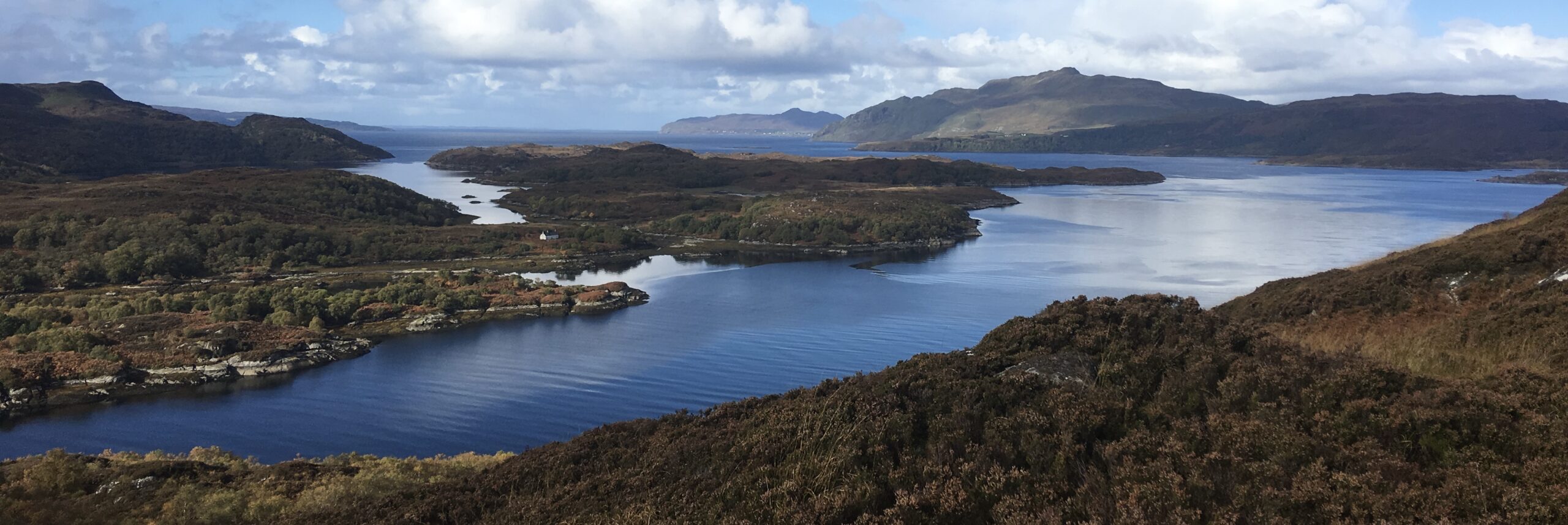
Modules
The Wilderculture Approach transition series
Principles of regeneration
Over a two-day farm-based training session led by Caroline, you will learn the principles of regeneration.
We cover how to assess the condition of your land and learn how to apply natural process as tools to increase primary productivity, improve soil health, resilience to drought or flood and enhance biodiversity.
The farm session will be followed up by an online self-led interactive training resource.
Developing your context
Following a live online training session and a series of information-gathering assignments, you will attend a two-day training at Wilder Gowbarrow led by Caroline to develop your unique environmental, social and economic goals – or ‘context’
This is the 200-year vision for your property that will be used as a guide when making management decisions.
Developing the habitat and grazing plans
Following a live online training session and a series of information-gathering assignments, you will attend a two-day training at Wilder Gowbarrow with Sam and Caroline to develop your land management and grazing plans.
Developing your first grazing plan is an involved and daunting task. We take you step by step through the process for the first time, and you will receive ongoing support via the online fortnightly clinics to help you adapt the plan as you go through the season.
Developing wildlife and livestock health plans
Three online live sessions will prepare the information for developing animal and wildlife health plans.
A session with a regenerative vet where you can invite your own practice vet to attend.
A session on livestock genetic selection strategies for Wilderculture projects.
A red flag session with Alex Tomlinson where you learn a process of how to reduce the negative impact of species that are causing problems or promote the resilience of important species in the ecosystem.
Outcome Monitoring
In regenerative systems, you cannot claim to be ‘regenerative’ unless you can prove you are achieving regeneration.
What and how to measure these outcomes is context specific and will depend on the claims you want to make about your management.
Monitoring might include; soil health, water infiltration rates, biodiversity indicators, animal health markers, profitability metrics and much more.
We can help you design your monitoring plan and can fit the suite of monitoring options to your budget and desired outcomes.
Online consultancy and clinics
For anyone who has attended the basic training or beyond we offer weekly consultancy zoom clinics where you can drop in and ask questions. The clinics will include different Wilderculture team members to benefit from the range of expertise, along with specific guest specialists to address any issues that have become a common theme in the group.
You will also have access to the Primal Web social media platform dedicated to regeneration and primal living. Here you can share your journey and access expertise.
There will be an option to work with Primal Meats to sell some of your produce.
Continuous learning
Ongoing Support
Many regenerative courses leave practitioners with more questions than answers. We are taking a comprehensive approach that can be adapted to the level of the learner.
The farm-based and online training sessions will be essential as a minimum requirement for the adoption of a Wilderculture approach. In addition – for those who want to go deeper – there will be a comprehensive self led training resource with extensive information about every aspect of transitioning to a Wilderculture approach.
Access to this resource will continue to be available indefinitely and updated and improved year on year to support you on your multi year transition.
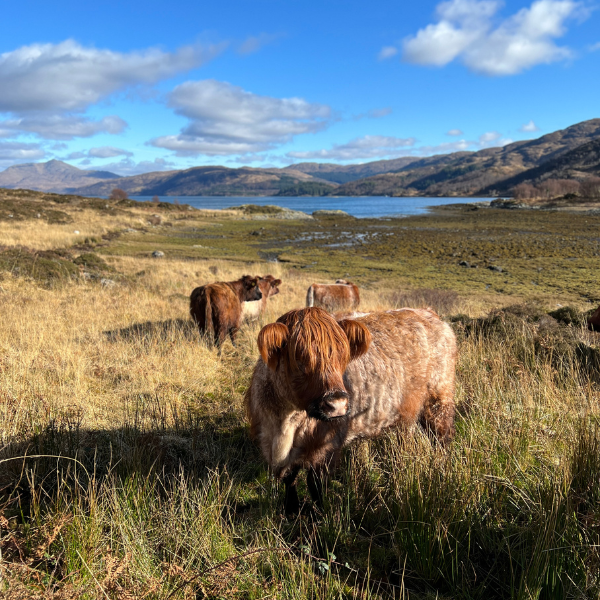

Peer to peer support
The Network
WILDERCULTURE CIC is taking a decentralised approach to expansion.
Instead of relying upon a conventional advisory model to scale up our approach we hope to create an expanding network of Wilderculture managers who have successfully adopted the approach and have completed the comprehensive level of the training program.
These managers (ecologists, farmers, stalkers, shepherds etc) can become part of the Wilderculture approach network, offering paid consultancy support to future cohorts in transition through the program.
Over time, all Wilderculture projects will benefit from an ever expanding knowledge base and examples of how the principles can be applied in differing contexts.

Multi media online resource

Farm based site visits and learning

Dedicated coach and peer support

Live webinars and clinics

Mobile friendly community platform

Exclusive content

Content adaptive to all learning levels and styles

Continous blended learning methodology
Continuous blended learning
Meet The Trainers
In addition to our Wilderculture training team below there will be specialist guest speakers invited to attend the consultancy clinics and present on certain topics.

Caroline Grindrod
CEO Lead Trainer
Caroline is the creator of the Wilderculture Apprach Transtition Pathway and will be leading most of the site based training and and hosting most of the fortnightly coaching clinics.
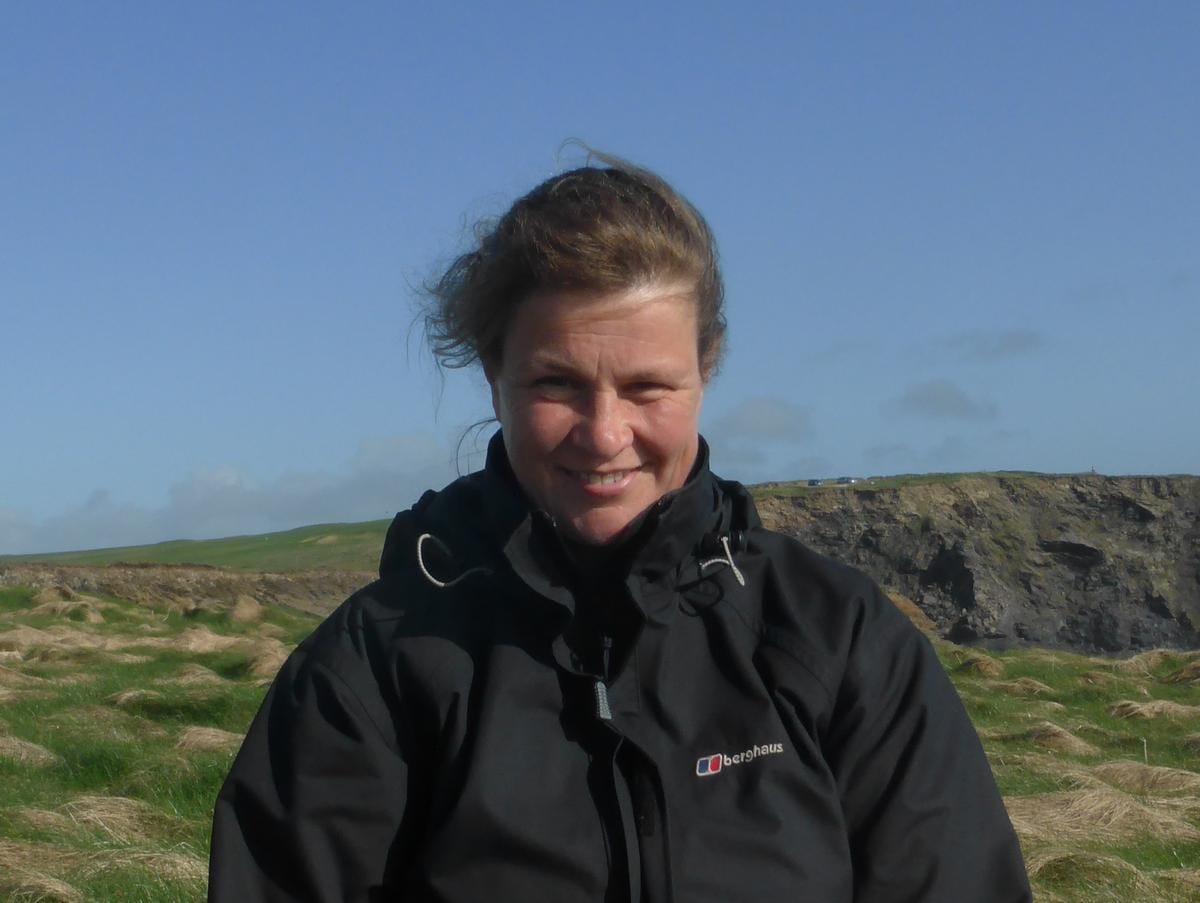
Alexandra Tomlinson
Vetineranary
Alex is a vet that specialises in wildlife population health and will be leading on the red flag training and running some dedicated coaching clinics.
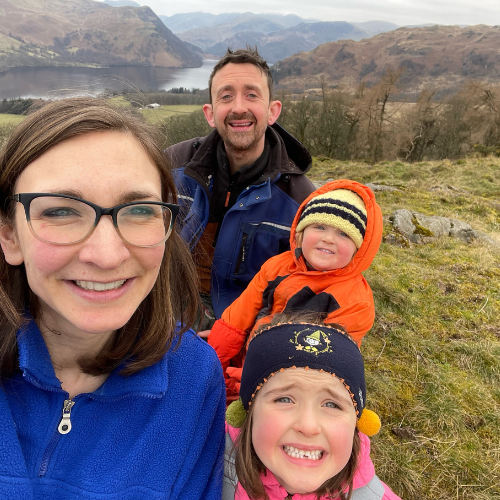
Sam And Claire Beaumont
Wilder Gowbarrow
Sam and Claire will be hosting the farm based training blocks at Wilder Gawbarrow in the newly completed training barn and running some of the coaching clinics.

